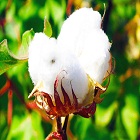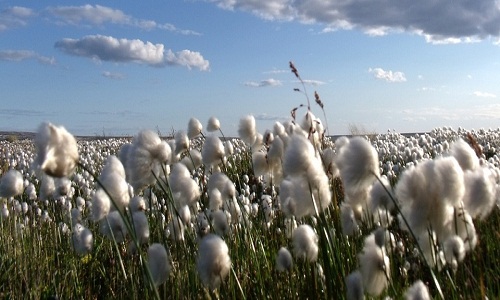"Cotton sustainability ranking released recently by Pesticide Action Network (PAN) UK, Solidaridad and WWF had just eight out of 37 companies make it out of the red zone while home furnishing giant IKEA which tops the list, is in the green zone. Cotton is one of the most commonly used and versatile textiles, everyday product from T-shirts to bank notes. But conventional production can have serious environmental and social impacts, from excessive water and pesticide use to poor labour conditions."

Cotton sustainability ranking released recently by Pesticide Action Network (PAN) UK, Solidaridad and WWF had just eight out of 37 companies make it out of the red zone while home furnishing giant IKEA which tops the list, is in the green zone. Cotton is one of the most commonly used and versatile textiles, everyday product from T-shirts to bank notes. But conventional production can have serious environmental and social impacts, from excessive water and pesticide use to poor labour conditions. The companies using the most cotton globally, from apparel brands and supermarkets to furniture manufacturers and household stores are failing to deliver on cotton sustainability should be of major concern.

The independent cotton sustainability ranking released recently by Pesticide Action Network (PAN) UK, Solidaridad and WWF, saw some others too in the green list including Adidas, C&A, H&M, Kering, M&S, Nike and VF Corporation (owner of Timberland, The North Face, Lee and Wrangler among others). The remaining 29 companies appear to do little or nothing to mitigate the impact of this essential raw material - Hermes International, Nordstrom, Ralph Lauren and Richemont are examples of those not yet in the starting blocks.
Problems related to cotton farming
To anyone who is motivated by sustainability and the agenda set out in the UN's new Sustainable Development Goals, this is worrying news. Cotton production is associated with depletion and pollution of water sources, long-term damage to soils and loss of biodiversity. Cases of pesticide poisoning are prolific, and the health dangers for cotton farmers and their families and communities are significant. Despite these issues, cotton farming has received very little attention in comparison to the well-documented problems in garment manufacturing.
For many developing economies, cotton farming is a mainstay that provides livelihood to millions of farmers worldwide - an estimated 40 million small cotton farmers produce around 75 per cent of the world's cotton - it is imperative to improve the way cotton is grown. Various sustainable cotton initiatives from Organic and Fairtrade to Better Cotton Initiative and Cotton Made in Africa have been trying to do just this by instigating more sustainable practices that cut farmers' costs and improve productivity, for a decade or more. Today, around 13 per cent of global supply is more sustainably grown. However, less than a fifth of this amount is actually sourced, bought and used by manufacturers and retailers as sustainable, with the rest being sold as conventional due to lack of demand from top brands and companies.
Lack of supply, so often cited by companies as the barrier, is no longer the problem. Excuses for low uptake of available supply given by companies include low consumer demand, complexity of supply chains and additional costs. In reality, sourcing more sustainable cotton has never been easier and these excuses crumble under close examination. There is no reason for companies not to improve cotton sustainability and offer more responsible products to customers. Moreover, this would give recognition and reward to farmers for the efforts they have made to improve.
Some are showing the way
Companies like IKEA, C&A and H&M are showing how cotton sustainability is good for business while others are failing to deliver. Manufacturers and retailers are simply not buying enough sustainable cotton, even though it is available and the price differential negligible. This inertia signals potential disaster for efforts to transform the cotton sector for the better. Consumers expect top brands to produce their goods in ways that at the very least don't harm people, communities or the wider environment in the name of profit. All major companies need to get on board and any caught napping will risk their brand reputation.
Through the ranking, campaigning organizations - PAN UK, Solidaridad and WWF are calling on all companies using large volumes of cotton to set, report and deliver on targets to use 100 per cent cotton from more sustainable sources by 2020 at the latest.












